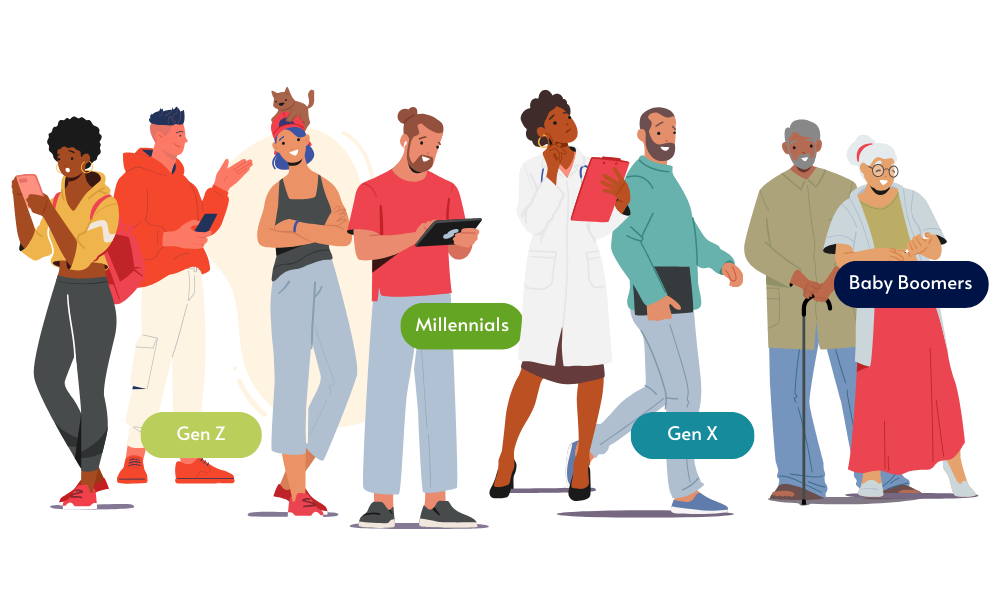In the early days of the internet as we know it, businesses relied heavily on Search Engine Optimisation (SEO) to gain better visibility on platforms like Google. SEO was fundamental to any successful digital marketing strategy, enabling companies to reach potential customers who were actively searching for products or services that they offer. Over time, this reliance on Google and other search engines created an environment where businesses fiercely competed over keywords to secure top rankings. This competitive landscape then led to a massive oversaturation of search results, essentially diminishing the quality of search experiences for users. In this article, we’ll discuss how SEO has backfired on businesses, and how this has resulted in the rise of social media as a preferred search tool among younger generations.

The Golden Age of SEO
SEO was initially regarded as a powerful tool for businesses to enhance their online presence; by optimising their websites with relevant keywords, meta descriptions and backlinks, companies could improve their rankings on search engine results pages. This meant that when users searched for specific products or services, businesses with strong SEO strategies appeared at the top, attracting significant traffic and potential customers. For example, someone searching for “50s dress” would historically find a variety of vintage brands and niche retailers offering authentic 1950s-style clothing. This connection between search intent and search results meant that Google was a crucial tool for both consumers and businesses.

The Oversaturation of Search Results
As more and more businesses recognised the value of implementing an SEO-based strategy, the competition for top keywords intensified. Large companies with substantial marketing budgets began to dominate the search results causing smaller, more niche brands to be overshadowed. The desire to achieve higher rankings then led to aggressive SEO tactics, such as keyword stuffing and excessive backlinking among other practices designed to manipulate Google’s algorithms.
This shift therefore had a huge impact on the quality of search results. Using our previous example, when searching for “50s dress,” instead of finding specialised vintage fashion stores, the top results were occupied by big fast fashion brands like Shein, Missguided and Temu. These brands prioritised broad keyword coverage over precise relevance to their actual products, leading to search results that were not tailored to the user’s specific intent; the search for a genuine 1950s dress became cluttered with generic fast fashion options that merely included “50s dress” as a keyword.
Google’s business model, heavily reliant on advertising revenue, further complicated the situation. Pay-per-click (PPC) advertising allowed businesses to pay for prominent placement on SERPs, often outcompeting any organic results. This emphasis on monetisation sometimes resulted in less relevant search outcomes, as Google’s algorithms prioritised profitable ad placements over the quality of the user experience.
Download Our Free Marketing Guides
We’ve put together some incredibly useful resources for businesses who want to learn how to target their marketing towards particular age groups.
And yep, they’re completely free! Simply join our mailing list to recieve our newsletters for business owners, and you’ll be directed to the download straight away.


The Human Touch of Social Media
As frustration with traditional search engines grew, users began seeking alternatives that offered more personalised and authentic experiences. Social media platforms like Instagram, TikTok and Pinterest emerged as valuable and more reliable search tools, particularly for Gen Z and millennials.
Unlike search engines, social media platforms are driven by human interactions and community engagement. When users search for products on these platforms, they are usually met with recommendations from real people, influencers and niche communities. These recommendations therefore carry a level of authenticity that is hard to replicate through algorithm-driven search results.
For example, that same user looking for a “50s dress” on Instagram might come across posts from vintage fashion enthusiasts, influencers showcasing their favourite finds or niche stores who specialise in retro clothing. These results are curated based on genuine interactions and user interests, providing a more satisfying and relevant search experience.

The Power of Niche Communities
One of the key advantages of social media search is the ability to tap into niche communities to promote your product or service. Younger generations are often characterised by having more distinct subcultures and more varying tastes compared to other generations; Gen Z and Millenials therefore often turn to social media to discover products that align with their unique tastes. Popular social media platforms like TikTok, Instagram and Pinterest allow users to explore content created by individuals who share their passions, for example from vintage fashion to eco-friendly products.
These niche communities play a crucial role in shaping consumer preferences. Recommendations from community members are seen as more credible and relatable than generic search engine results. When a vintage fashion influencer posts a picture on Instagram and tags a small business selling authentic 1950s dresses, it resonates more with the user than a top result on Google dominated by fast fashion giants.
Train Your Staff in Marketing
Your Own In-House Content Creator

The Shift in Marketing Strategies
Unsurprisingly, the rise of social media as a search tool has prompted businesses to adapt their marketing strategies accordingly. Traditional SEO does still remain important, but the focus has shifted towards building a strong social media presence and engaging with communities. Brands are now choosing to invest in influencer partnerships, user-generated content and authentic storytelling to reach their target audiences.
Going back to that 1950s dress, a vintage clothing brand might collaborate with popular Instagram or TikTok influencers known for their retro style. These influencers showcase the brand’s products in a way that resonates with their followers, driving traffic and sales through authentic endorsements. This approach not only enhances brand visibility but also creates a sense of trust and loyalty among consumers.

The Future of Search and E-Commerce
The transition from traditional search engines to social media search is likely to continue as Gen Z becomes the dominant consumer demographic. In order to be successful, businesses now must recognise the importance of authenticity and genuine community engagement in their marketing efforts. While SEO will still play a role in generating potential customers or clients, the emphasis on human-led interactions and personalised recommendations will undoubtedly shape the future of search and e-commerce.
Businesses need to balance their SEO strategies with a strong social media presence. This includes creating high-quality, engaging content that resonates with their target audience, participating in relevant communities, and utilising the power of influencers and user-generated content.
The rise of social media as a search tool marks a significant shift in the way consumers discover products and services, as the oversaturation of traditional search engines like Google, driven by intense competition and aggressive SEO tactics, has diminished the quality of search results. Social media platforms offer a much more personalised and authentic experience, driven by human interactions and community engagement. As younger generations continue to search for products through social media platforms, businesses should make an effort to adapt their marketing strategies to prioritise authenticity. Brands can be successful in this new era of search and e-commerce by using the power of search on social media and its unique strengths to their advantage, ensuring they remain relevant and accessible to their target audiences.






